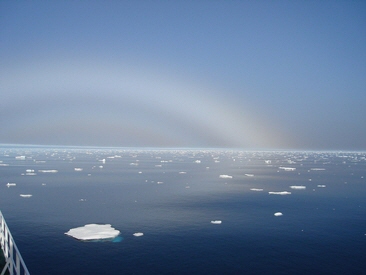Ozeanographie (Prof. Rhein)

About us
The Department of Oceanography is located at the Research Division 1 of the University of Bremen and is part of the Institute of Environmental Physics (IUP).
The ocean influences our climate in many ways. Oceanic currents transport large amounts of heat around the globe and cause an additional heating or cooling of the continents. The ocean takes up considerable amounts of greenhouse gases that otherwise would be stored within the atmosphere and thereby would contribute to the heating of the atmosphere. We investigate changes in these climate-relevant processes in the ocean by applying a wide spectrum of modern experimental methods.
Research Topics
- Formation of Deep Water: What is the rate of variability in the formation and spreading of deep water in the North Atlantic as well as in the Southern Ocean ? What are the effects of changes in deep water formation on oceanic storage of anthropogenic CO2 ?
- Circulation: What is the extent of large-scale circulation changes in the subpolar North Atlantic, one of the key regions for the global climate-relevant ocean circulation ?
- Mixing: What is the role of boundary currents, meanders, eddies, and hydrothermal systems for turbulent vertical mixing, and how does mixing influence the climate-relevant ocean circulation ?
- Upwelling: What is the role of vertical movements for the heat and nutrient budgets in coastal regions off Africa and off Peru?
- Groundwater dating
Excellence Initiative of the German Federal and State Governments
In June 2012 the University of Bremen was upgraded to be a "University of Excelence", and the Excellence Cluster dealing with marine sciences, "The Ocean in the Earth System - MARUM", was funded for another five years. The Department of Oceanography contributes to this Excellence Cluster within a sub-project affiliated to the section "Ocean and Climate". It expands existing expertise with respect to investigating variations in the formation of North Atlantic Deep Water. This is done by a comparison of observations and model analyses from the Nordic Seas and the subpolar North Atlantic.
Funding
Our research is part of national and international programmes and is mainly funded by the German Federal Ministry of Education and Research (BMBF), the German Science Foundation (DFG), and the European Union (EU).
Service
We offer the following service for research institutes and companies:
- analysis of chlorofluorocarbons in sea water and gas samples
- helium and neon isotopes analysis of water and gas samples
- analysis of tritium concentrations
